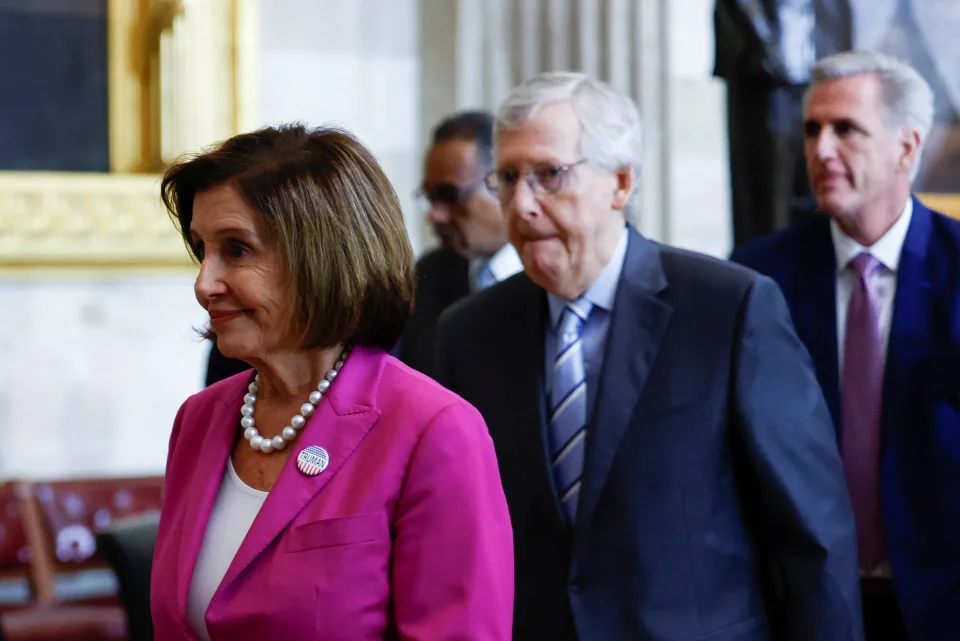
If you thought the rip-roaring start to the fourth quarter for markets was high drama, you better buckle up for Election Day on Nov. 8. Democrats could lose their majority in Congress, which of course would have implications for your battered portfolio.
Democrats have an expected edge in the Senate races while Republicans are predicted to win the House. So you guessed it: That means a divided government yet again. While you might not like the sound of a stalled government, an unproductive Congress could be good for markets since investors wouldn’t have to worry about Democrats’ new tax and spending initiatives.
“If you look at the combination of a Democratic president and either a Republican-led or split leadership Congress, that has been one of the best environments for stocks over time. We also know that investors intuitively like gridlock,” RBC Capital Markets strategist Lori Calvasina told Yahoo Finance Live. “What I hear from investors is that they worry that some of the Democratic initiatives that have been on the table in the past that haven’t gone through would end up adding to the inflation problem.”
In other words, the Democrats’ loss would be the market’s gain. In the meantime, expect more turbulence amid the uncertainty of the election outcome — and ahead of the Federal Reserve meeting on interest rates on Nov. 2. The decision and stock market reaction could swing election turnout and influence how stocks end the year.
The upside is that it’s almost the holiday season.
By the Numbers: Mid-Term Elections + Stock Market
What’s up for grabs: Miderm elections 2022
- All 435 House seats and 35 of the 100 Senate seats (source: Jefferies)
- 36 out of 50 states will elect governors (source: Jefferies)
What stocks tend to do around midterm elections
- Since 1942, the median equity market returns in the first three quarters of midterm election years were -1%, 2% and 5%, respectively. 4Q returns jumped to 8%. (Source: U.S. Bank)
- The average annual return of the S&P 500 in the 12 months before a midterm election is 0.3%, below the historical average of 8.1%. (Source: U.S. Bank)
- The S&P 500 has historically outperformed in the 12-month period after a midterm election, with an average return of 16.3%. (Source: U.S. Bank)
- The last time the S&P 500 Index produced negative returns during the 12 months after a midterm election was 1939 (see Great Depression World War 2). (Source: U.S. Bank)
What Wall Street Is Saying on the Mid-Terms and Stocks
- “Our analysis shows that the health of the economy is a much more important factor than midterm election results.” — U.S. Bank
- “The higher cost of living and an aggressive rate tightening cycle complicates the voting picture. A lot will depend on voter turnout on the day.” — Jefferies
- “But irrespective of the result, there’s a consistent market signal in all 19 midterm elections since WWII: The S&P 500 has ALWAYS been higher exactly a year after the vote.” — Deutsche Bank
- “There are myriad unknowns heading into this period, not the least of which is how the midterms will impact the legislating calculus, but we expect movement on the annual defense bill, a federal funding package that could become a Christmas tree carrying numerous ornaments, and possibly a targeted tax bill.” — BTIG